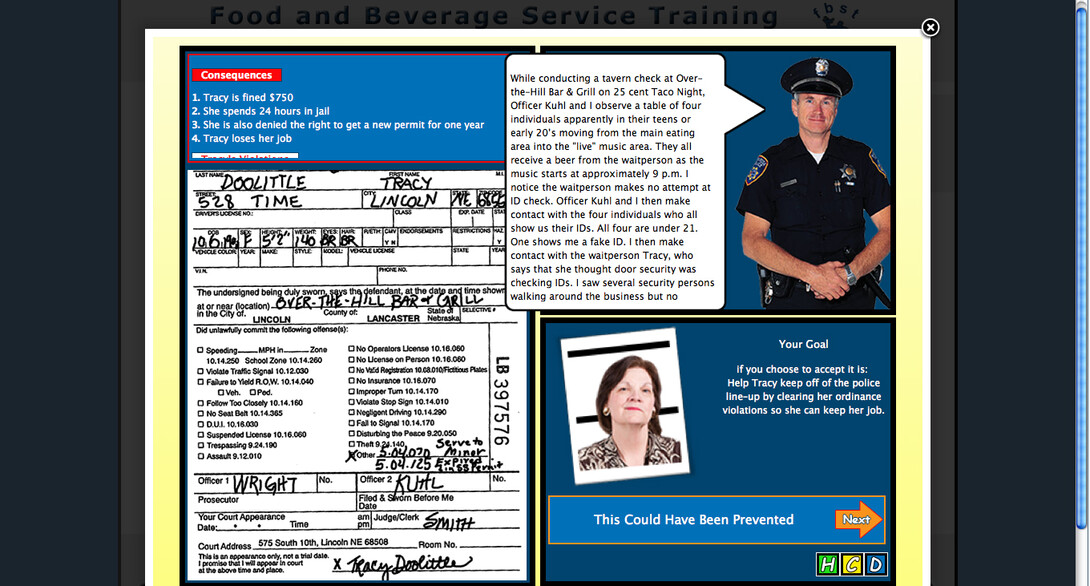
A collaboration led by UNL is helping educate alcohol servers about local and state regulations.
The project is part of the Food and Beverage Service Training website built by Online and Distance Education’s Professional Online Programs team. Working with Lincoln/Lancaster County’s health department and responsibility council, the Online and Distance Education team recently expanded the website to include new training for servers working in Lincoln.
Deb Meier, senior assistant director of professional online programs for Online and Distance Education, said the localized training has been required since Lincoln extended alcohol sales in bars by one hour to 2 a.m.
“When the city approved the new ordinance on alcohol sales, they included a stipulation that all servers in Lincoln must receive a special training and a permit,” Meier said. “We worked with local agencies to add the new, interactive level of training to the food and beverage service training portal.
“It is now a one-stop training and information source for employees, businesses and law enforcement.”
The training portal (available at http://fbstnebraska.unl.edu) is designed and maintained by Meier and Robert Harrison, web application programmer.
The Online and Distance Education team has managed the food and beverage service-training site for many years. The site offers training and permits for statewide alcohol service and Lincoln-Lancaster County food handlers.
The new Lincoln-specific alcohol-training portal is interactive, using memory tricks to help learners retain and apply information about city ordinances. The system is designed to use real-life scenarios that alcohol servers may experience.
“Basically, there are four characters who have violated city ordinances,” Meier said. “Through the portal, you go back through the scenario with them and help choose the right answers. By the time users work through each situation, they’ve learned about the different ordinances that can affect their job.”
The training is presented in packages of information, allowing users to review and answer correctly before moving on to the next part of a scenario. Meier said that type of engagement allows users to immediately apply information and receive success or failure feedback, bolstering understanding.
“Working through each scenario provides actual test questions throughout, so users may not even realize they are actually taking the permit test,” Meier said.
The site also allows business owners/managers, law enforcement personnel and food inspectors access to a permit holder database.
“Deb and Robert put together a myriad of complex and interrelated pieces to create and extraordinary program that includes both food and beverage training,” said Joy Citta, a captain with the Lincoln Police Department and part of the executive council of the Lincoln-Lancaster County Responsible Hospitality Council. “The addition of a useable database for owners, managers, health food inspectors and law enforcement provides an easy access to see permits and expiration dates. This, in turn, aids in carrying out compliance and code enforcement.”
For more information on Online and Distance Education’s Professional Online Programs Team, contact Meier at dmeier1@unl.edu or 402-472-1183.







